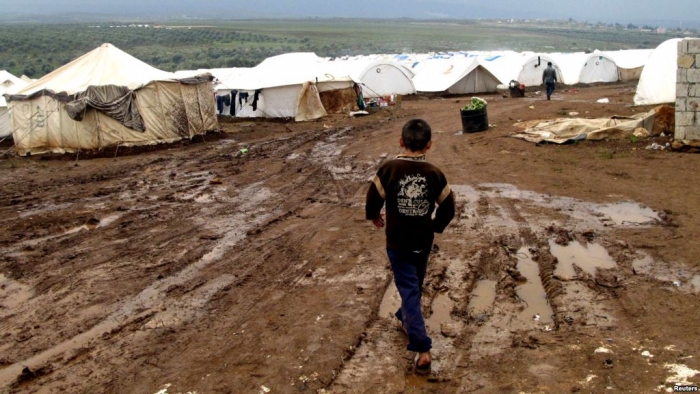The ongoing Russian bombardment of opposition-held areas for over a month has forced many Syrians to establish new displacement camps.
Tens of thousands of newly displaced people are setting up camps with the support of Syrian and Arab donors and local volunteer teams in the northern countryside of Idleb, near Syria’s border with Turkey.
Most of the newly displaced people are from the northern and western countryside of Hama, the southern countryside of Aleppo and the southern countryside of Idleb, as these areas continue to witness violent clashes between opposition factions and regime forces backed by Russian air cover.
The new camps are lacking most basic necessities, including water, electricity, and schools for children, while in many cases more than one family lives in a single tent. Despite this, many displaced people expressed their happiness at being able to secure a tent, as thousands of others have been forced to flee their homes without the prospect of proper shelter.
Establishing proper conditions for a camp involves several stages: evening the ground, preparing structures and then covering them with fabric, and dividing the tent into sections (one for cooking, a section for basic necessities and the remaining area for sleeping).
Abu Ali al-Idlebi, the head of a volunteer team in the Sarmada area in the northern countryside of Idleb, said that they were forced to set up camps in the uninhabited mountains of northern Syria to accommodate families fleeing the intensified Russian bombardment.
Idlebi stressed that the Russian campaign has increased the suffering of civilians, pointing out that the continued bombing would result in double the number of displaced people, along with the onset of winter and the start of the rainy season.
Abu Omar, a displaced man from Hama, pointed out that there are currently thousands of displaced people with no access to camps who have instead been forced to sleep on farms.
This article was translated and edited by The Syrian Observer. Responsibility for the information and views set out in this article lies entirely with the author.


